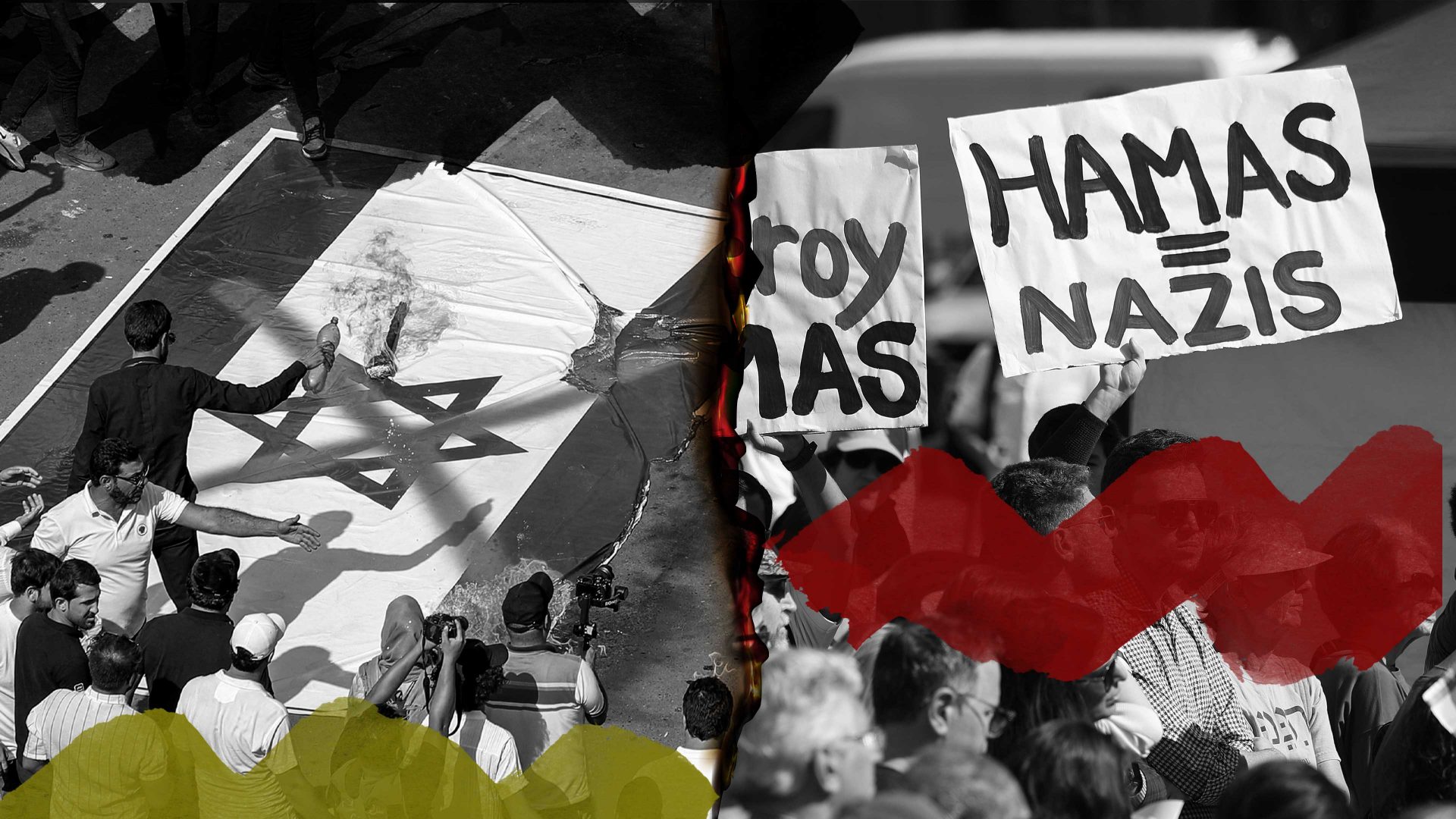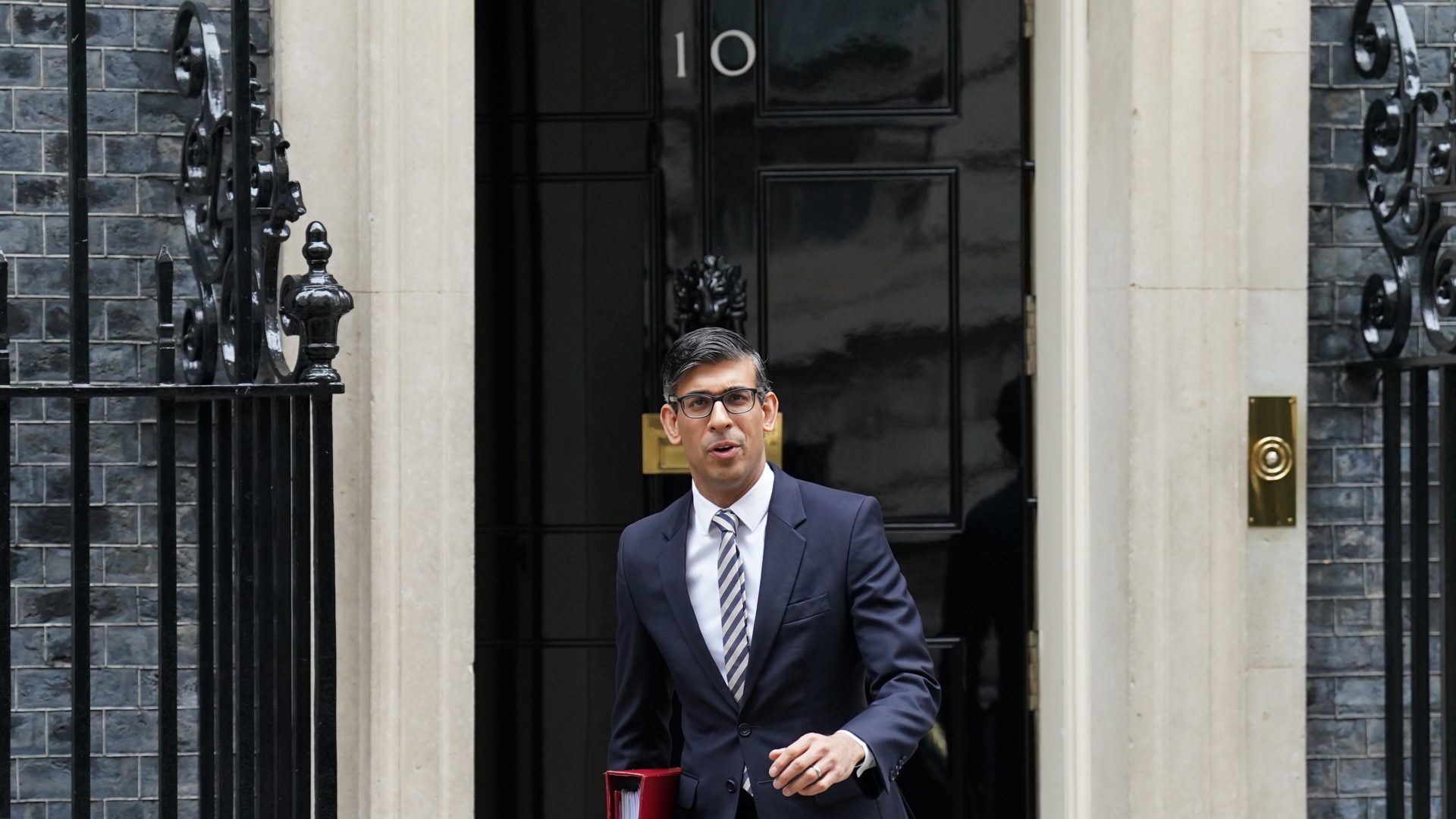I have finally put my phone aside. I decided that the video on X of a couple of men in Pakistan tearing apart an Israeli flag and eating – literally! – eating the pieces should be the surreal finale of my daily social feed. If only they knew they had inadvertently passed the threshold to Monty Python’s Life of Brian.
A previous video in my timeline fell short of that: the young men and women with Palestinian flags (these were not chewed-up) shouting “Scheiß-Juden” in front of a heavily guarded synagogue in Gelsenkirchen somehow lacked the element of the bizarre. They were just sickening. An impression that is shared by the vast majority of people in Germany.
We’ve had it.
After decades of being passively ill at ease with Palestinian solidarity marches that regularly turned into antisemitic rants (“Gas the Jews”), last week’s events have shaken what has always been a wrong kind of tolerance.
A journalist, Turkish-born Hatice Akyün, basically spoke everyone’s mind in her emotional Facebook post: “How dehumanised and degenerate must one be to hand out sweets after this act of barbarity? You abuse and spit on the country that has granted you protection, that offers you a secure life, and you spurn its democracy. Get the f*** out of my country, no one wants you here.”
We all know it’s not that simple, problems rarely go away when shouted at, especially if they have nowhere else to go or carry the same passport as you do, but at least the public and the political class are – for the moment – demonstrating a clear consensus on what they are unwilling to accept from now on. Celebrations of Hamas terror, still sloppily disguised as “Solidarität mit Palästina” or “Peace for the Middle East”, were forbidden by local authorities. In Germany, the freedom to assemble isn’t an unconditional right. Our constitution doesn’t protect gatherings that incite or promote hatred. When hundreds of people rallied in Berlin to shout “Yalla Intifada” and worse, despite a court ban, police kept them in check.
In addition, political vows to have antisemitic agitators prosecuted are so resolute that we may indeed see a shift from the usual laissez-faire. The voices of moderate Muslims (often in need of police protection) who have long warned about Germany’s naivety and blindness towards Islamists get more airtime. The country is unanimously appalled after Jewish homes in Berlin and elsewhere were sprayed with Star of David graffiti. And the massive funding Germany provides for organisations and clubs that ultimately nurture antisemitism is finally questioned at the highest political level. But for how long?
Right now, anyone with the tiniest amount of human decency agrees that what Hamas did and proudly live-streamed was unspeakably evil. Days after babies were murdered simply because they were Jewish babies, the “Yes, but Israel…” is a little less audible in Germany.
And yet Germany’s Muslim councils embarrassed themselves by calling upon “both sides to stop the fighting” in their response to October 7. And many non-Muslim “both sides” apologists, hypocrites, whataboutists and other useful idiots are already at work trying to justify what isn’t justifiable.
How long will it take them, with Israel now involved in a long and bitter war that will cost even more innocent lives, to change the narrative back to moral relativism?
The “both sides” rhetoric is omnipresent, not just among the malignant and/or ignorant street mob. It creeps through terminology, by not saying which side is which. German broadcasters – like the BBC – have difficulty calling terrorists by their name: Hamas were described as fighters, militants, activists. As if the Tiktok and Telegram videos showed partisans or valiant members of the resistance slaughtering civilians and desecrating soldiers’ corpses in Israel.
I travelled there in 2010, with a small group of European journalists invited by the American Jewish Committee’s project interchange. It was five years after Israel had handed Gaza over to the Palestinians and three years after Hamas had taken over. We saw the bus-stop-bunkers in Sderot, the Qassam Museum with shelves piled high with the rusted hulls of rockets fired by Hamas. To my surprise, the programme also took us to meet Palestinian officials in the West Bank. Our AJC hosts made sure to show us “both sides” in this long and complicated conflict.
Since the horrors of October 7 it is less complicated. Hamas has made it brutally simple to pick a side. The challenge for our society will now be to see it through.




